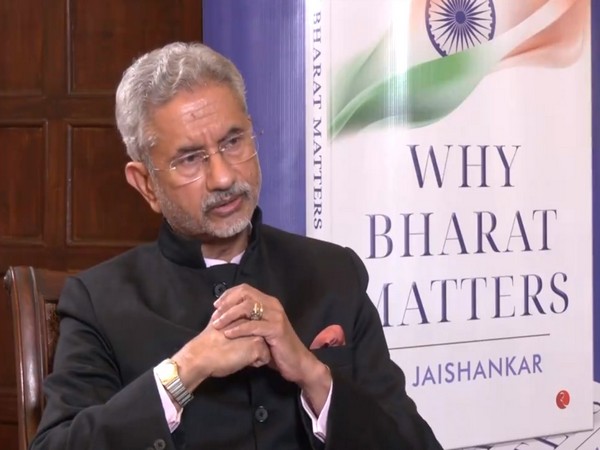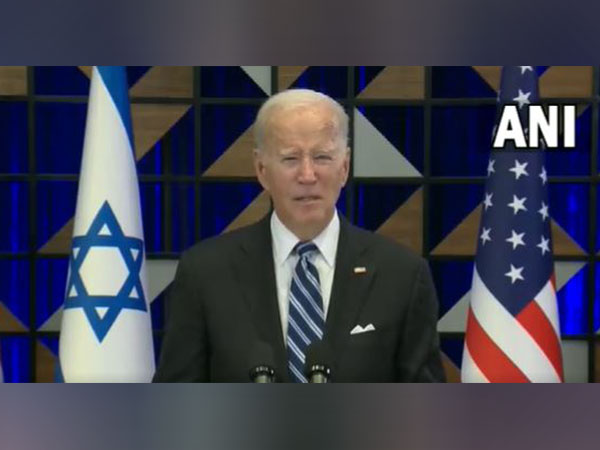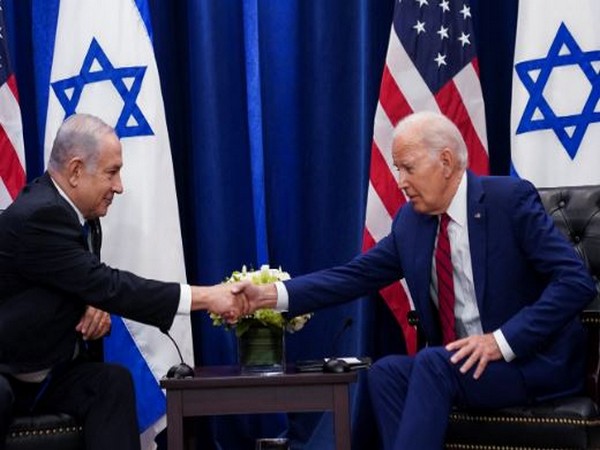Frequent gaffes by the two main contenders for the 47th presidency of the United States has brought the focus sharply on whether age is more than just a number when it comes to politics. Unless something unforeseen happens, the US presidential elections in November this year will be a face-off between the incumbent Democratic US President Joe Biden, who is 81, and his challenger and former Republican President Donald Trump, who is 77.
Both gentlemen have been grabbing the headlines recently with what would seem like instances of memory lapses or cognitive failure. A few weeks back, while delivering a speech, President Biden mistakenly referred to Egyptian president Abdel Fattah al-Sisi as the leader of Mexico. Earlier this year, Trump confused his main Republican rival Nikki Haley with Nancy Pelosi, a Democrat and former speaker of the US House of Representatives. Ironically, Biden made his confused remarks when he was defending his position after a special counsel report on his handling of classified documents that had referred to his memory as “poor”.
Both Biden and Trump have committed other similar gaffes that point to memory lapses but their aides insist that the two are not mentally infirm and that they do not suffer from age-related mental conditions that could interfere with a job that is arguably one of the most important and impactful in international geopolitics. The US is the most powerful country in the world–economically and politically–and the US President is highly empowered to take decisions that could affect the rest of the world in profound ways.
How old is too old in politics?
The focus on their age, however, can raise questions about whether age should be a factor determining eligibility for top political jobs. Should there, for instance, be an age limit for those who aspire for top political jobs? Many company boards have retirement ages for their directors who have to step down, say, when they reach 70 or 75. Should governments have similar rules on retirement?
According to a new Pew Research Center analysis, the average age of current national leaders is 62 years. When grouped by decade, the largest share of global leaders today (35%) are in their 60s. Roughly a quarter (22%) are in their 50s, while 18% each are in their 40s or 70s. Measured against those statistics, both Biden and Trump are much older than the average.
Yet, both of them are younger than many heads of state in the world today. For instance, the oldest currently serving head of state is Paul Biya, who at 91 has been the president of the Central African country of Cameroon since 1982. There are others too who are older than Biden and Trump. Palestine’s president Mahmoud Abbas is 86; Cuba’s Raoul Castro is 85; and Namibia’s president Hage Geingob served till he died early this month at 82.
In India, surprisingly, heads of state (and I refer here to Prime Ministers and not Presidents) have been relatively young. When Jawaharlal Nehru became the first Prime Minister of India in 1947 he was 57; Indira Gandhi was 48 when she became Prime Minister; Rajiv Gandhi was 40; and Narendra Modi, the current Prime Minister, was 63 in 2014 when he began his first term. He’s 73 now.
India has also had its share of older Prime Ministers, though. When Manmohan Singh became Prime Minister in 2004, he was 71, the same age at which the late Atal Behari Vajpayee became Prime Minister. And, in 1977 when Morarji Desai became Prime Minister he was 81. His successor Charan Singh was 76 when he got the top job; and when I.K. Gujral became Prime Minister in 1977, he was 77.
There aren’t really many instances of cognitive failures or memory lapses by Indian Prime Ministers or other senior ministers–at least, they haven’t been reported in the media (although I once attended an Indian foreign minister’s press conference in 2010 where he repeatedly referred to Russia as the Soviet Union but I guess we can pardon that slip!).
In fact, some anecdotal accounts of Indian Prime Ministers showing signs of exhaustion or tiredness are lapses that might not have anything to do with age. One of them famously concerns H.D. Deve Gowda, who became Prime Minister quite unexpectedly in 1996 when a short-lived coalition of regional parties won the elections. Deve Gowda was only 63 when he got that job but he soon earned an unenviable reputation for falling asleep during official meetings. His nodding off probably had nothing to do with his age. After all, who doesn’t like to sneak in a cheeky siesta or a power nap?
Lifestyle choices can make a difference
Indian politicians, particularly those who have taken up powerful positions in government often enjoy and edge over others when it comes to health and mental well-being. Many of them follow healthy lifestyle routines that keep them in good stead. At 73, Prime Minister Modi is pretty fit, both physically and mentally. A keen adherent of yoga, he practices the discipline daily and has been doing so for years; he walks regularly; and is a vegetarian who also fasts intermittently. His predecessor, Manmohan Singh, now 91, was also known for his spartan eating habits and healthy lifestyle. Neither Modi nor Singh (during his two terms as Prime Minister) has ever shown signs of mental confusion or committed gaffes such as ones by Biden or Trump.
Historically, India’s prime ministers have led disciplined lives that have been healthy and abstemious. Forty-six years ago, when Morari Desai became Prime Minister at 81, the New York Times wrote: “Mr. Desai forswears many pleasures of life. Not only is he a teetotaler, he is also a rigorous vegetarian, living on a diet of fruits, nuts and milk and fasting frequently. He renounced sex after he and his wife had five children.”
Zooming back to the two most likely candidates for the US presidential election, the question is whether having an age limit is a guarantee for having someone who is sound of mind to run a country or should it be something else. Earlier this month, in a guest column for the Economist, David Owen, a former British foreign secretary and Member of Parliament, waded into the Biden-Trump age controversy and argued that no one above the age of 70 should be considered for the job of head of state. Lord Owen, who is also a former neurologist, argued that in humans aged 60-70, the brain’s frontal lobe and an area called the hippocampus begins shrinking and this affects how the brain processes information. Because of that memory and cognitive functions can get affected.
Extrapolating from that and with examples from history (examples involving the US President Franklin Roosevelt and his decision to stand for elections in 1944), Lord Owens recommends that Biden should voluntarily step aside in favour of a younger nominee from the Democratic Party during this spring’s national convention of the party.
Lord Owen’s suggestion of an age limit is one point of view. The problem with it is that not everyone ages in the same way. There are enough examples that one can draw from different fields to show that some individuals continues to demonstrate mental acuity well into their eighties and even nineties. The list of notable people who have continued to work well into their senior years is too long to list out here.
Why not tests instead of an age limit?
Rather than an age limit to ensure that only people with sound minds get to govern countries, would it not be more scientific to test the brain functions of an ageing person, depending on the purpose and the level of cognitive abilities that are needed for a job? There are different ways of assessing the brain function of an aging person, depending on the purpose and the level of detail needed. Some methods that could be adopted are:
Cognitive screening tests: Short, quick tests that check how well your brain is processing thoughts. They involve answering simple questions and performing simple tasks, such as recalling a list of items, spelling words, or drawing a clock. These tests do not diagnose specific diseases, but they can identify a problem with cognition and the need for more in-depth testing.
Brain imaging techniques: These are methods such as magnetic resonance imaging (MRI), computed tomography (CT) scans or electroencephalogram (EEG) that can help detect changes in the brain due to aging, disease, or injury.
Neuropsychological assessment: This is a comprehensive evaluation of the cognitive, emotional, and behavioral functions of the brain. It involves a series of tests that measure memory, attention, language, reasoning, problem-solving, and other skills. This assessment can help diagnose specific conditions, such as dementia, Alzheimer’s disease, stroke, or brain injury.
Instead of an age limit, scientific tests and assessments such as those listed above could be a better way of ensuring that an aging candidate retains the mental capabilities that the job of, say, the head of state would require. However, there is a catch. Will such tests be acceptable for politicians, political parties, and the interest groups that they represent? My guess is that they probably won’t. At least not in the foreseeable future. Till then, we will have to amuse ourselves as some senior citizen politicians make their occasional gaffes, suffer memory lapses or just nod off to sleep.
For more details visit us: https://lokmarg.com/







